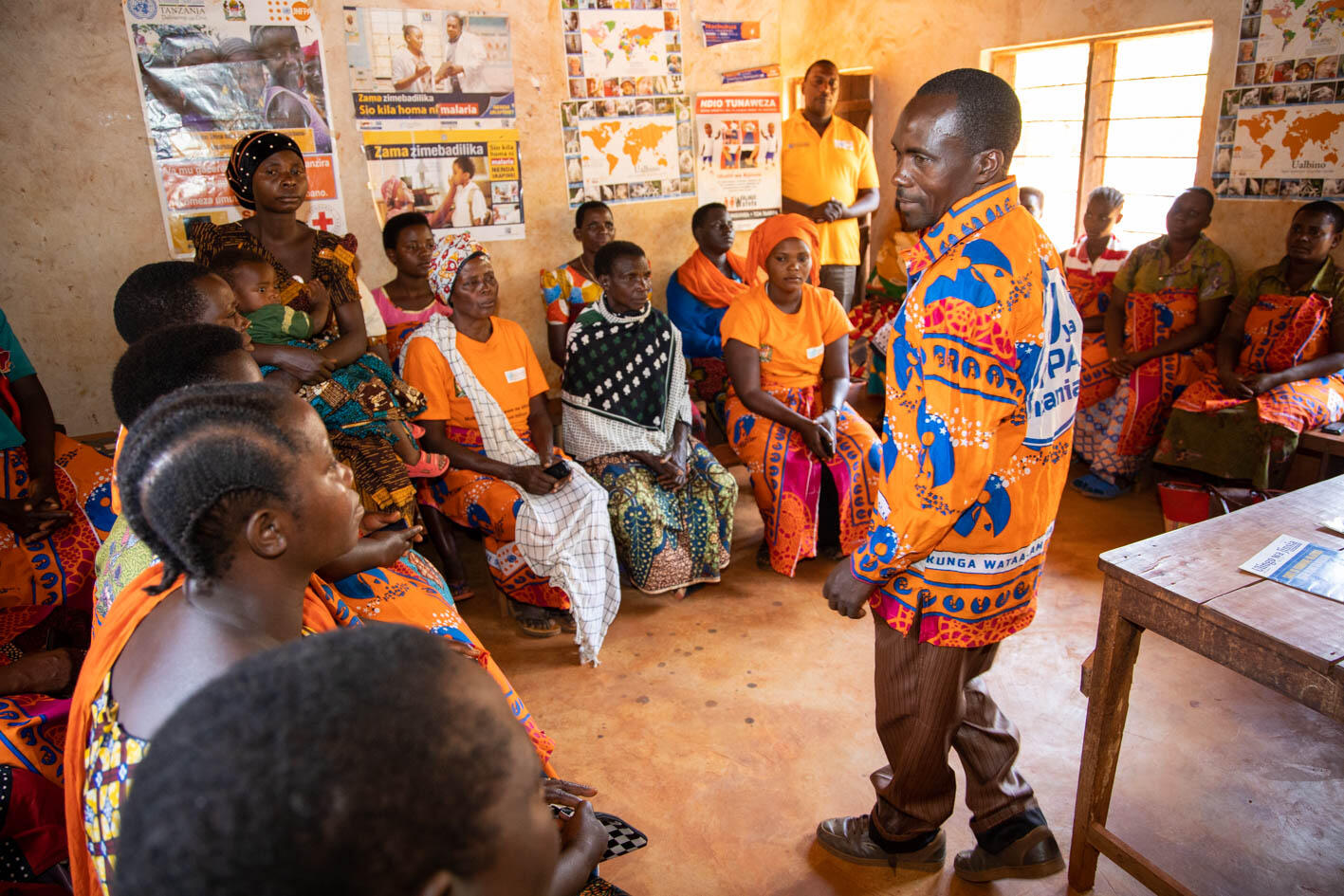Musoga, a Priest/Reverend of the Pentecost Church, has been holding services for refugees in Nyarugusu Camp for almost 10 years. He also arbitrates conflict between members of his congregation. Most of the cases, he says, involve intimate partner violence (IPV).
Addressing the audience at the Engaging Men in Accountable Practice (EMAP) Gender-Based Violence (GBV) Prevention Programme graduation ceremony Musoga says: “Violence was threatening to break up the marriages of many of my followers and it also impacted on the well-being of their children.” In the past 12 months, he continues, things have changed for the better and it has now been a month since he has had to arbitrate on a case of IPV. This, he believes, is due to the EMAP GBV Prevention Programme implemented by the International Rescue Committee (IRC) with the support of UNFPA, which encourages men to reflect on their behaviours towards their wives and family members.
As part of the initiative the IRC gives men and women in the camp an opportunity to be enrolled in training and to learn about gender, gender equality, GBV, women’s empowerment and human rights. Men attend training for a 16 week period as the main target of the programme. For women the training lasts eight weeks and focuses on gender and GBV. Women are asked to talk about the types of behaviours they think males/husbands/partners should address, and this is integrated into the men’s training.
“I want to confess that I was not a good husband” Bakome* says to his peers at the graduation ceremony in Nyarugusu Camp. “I used to beat my wife, push her, verbally insult her and I cannot remember if I ever assisted in any of the day-to-day household chores.” Now he feels like a different man, a more accountable husband who is caring towards his wife, Masengu,* and who helps with the household chores including washing the dishes. “My female friends keep asking me what kind of herbs I have given to my husband to change him into someone so loving,” says Masengu. “I tell them just EMAP!”
Tshamala,* a resident of Zone 4, Nyarugusu Camp, shares the same sentiments. “Neighbours now admire my marriage since my husband attended EMAP training”, she says. Her husband, Tshamala* and children now lead a more peaceful life. “We plan together, assist each other in household activities and value everybody’s contribution in our family”, Tshamala adds.
Mundedi* – an EMAP graduate and resident of Zone 11, Nyarugusu Camp – was recently selected to be a Village Secretary due to the exemplary way he lives with his family of four. “I was told that the way I live with my family is impressive and that I should take the lead in spreading the love in our village.”
Bakome, Tshamala and Mundedi are among 548 refugees, including 233 men, who attended the recent EMAP graduation ceremony. Speaking about the sustainability of results, EMAP facilitators say they conduct monthly meetings with graduates and meet separately to talk with their neighbours: “Adherence is almost 100 per cent among our graduates” says Kazana Faustine, EMAP facilitator.
Reverend Musoga has shown his appreciation to the EMAP programme by providing church space to accommodate EMAP sessions and has asked UNFPA to continue its investment in the programme to extend its reach in the camps.
UNFPA, as part of interagency efforts, provides development and humanitarian assistance to both local communities in Kigoma Region and the population of 269, 536 living in the three refugee camps – Nyarugusu, Nduta and Mtendeli. In addition to its support to the EMAP programme UNFPA is also building capacity for GBV prevention and response services in the camps as part of its global commitment to end GBV and harmful practices against women and girls by 2030.
*All names have been changed.
1. UNHCR. Tanzania Refugee Population Update as of May 2019.
- Ali Hamad


